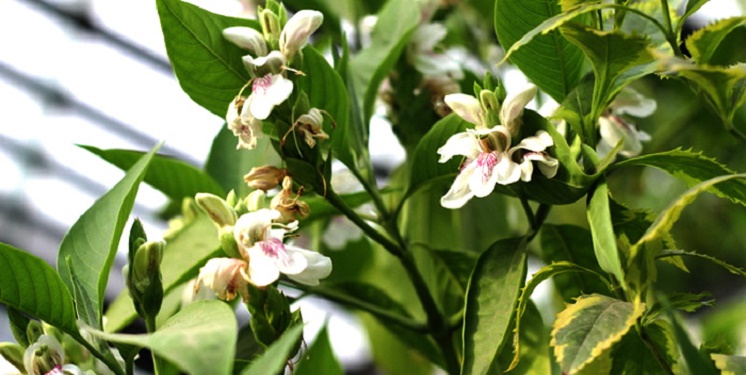Uncategorized
Adhatoda Vasika – Justica Adhatoda
Contents
Worldwide name of Justica Adhatoda
Hindi:- Adusa, Adulsa, Adoosa, Arusa, Rusa, Bisonta
Sanskrit:- Vasak, Vasa, Sihirka, Ramroopak, Veshwamata
Marathi:- Adulsa
Gujarati:- Ardusa
Bengali:- Vasak
Punjabi:- Bikand
English:- Malabar Nut
Latin:- Adhatoda Vasica, Justica Adhatoda
Other common names are:-
Malabar nut, White vasa, Yellow Vasa, Boga bahok, basak, aradusi, araduso, arus, arusa, pramadya, rus, sinhparni, vajini, visauta, adusoge, adulasha, adulso, adusoge, aatalootakam, nongmangkha angoubha, adulasa, kawl-dai, asuro, kalo bhasaka, basango, vrysha, atarusa, pra-madya, simhasya, vaji-danta, vajin, vsaka, vasuka, acalaim atatoti, attucam, cimma-muki, cinkam, cuvatu, iratta pittam, kattu-murunkai, pavattai, vacai, vacate, vaittiya-mata, addasaramu, my-yar-gyi, ye-magyi, htingra-hpraw (Kachin), hla brairot (Mon), adalsa, adarsa, adosa, adulasa, adulaso, arusa, arusha, arusu, bans, bansa, basa, basauti, bashing, basinga, basingu, basute, basuti, rus, rusa, vasaka, aadsoge, adasoge-sappu, addalasa, addasara, adsale, adumuttada, adusege, adusogae, adusoge, aduthoda, alasoge, atarusha, atusoge, byalada, edmuttanditappu, edumuttanditappu, yedumuttanditappu, adalodagam, ata-lotakam, ataloetakam, atalotakam, attalotakam, adaso, adulsa, adulsi, adulso, adusa, baksa, vasuka, adarushah, amalaka, arusak, atarusa, atarusah, atarusaka, atarusha, bashika, bhisahkmata, bhishagmata, bhishangmata, kanthiravi, kasanotpatana, matrisinhi, mrigendrani, nasa, panchamukhi, raktappittaghni, raktavasa, ramrupaka, rasadani, simhamukhi, simhasya, simhavadana, simhi, simhika, sinhamukhi, sinhanana, sinhaparni, sinhapatri, sinhasya, sinhi, sinhika, sitakarni, vaidyamata, vaidyamatruvrikshaha, vaidyasinhi, vaji, vajidanta, vajidantaka, vajidanti, vansa, vasa, vasaka, vasakah, vasha, vasika, vrisha, vrishasinhamukhi, vrsa, vrsah, vrsaka, aadaa thoda, aadaathoda, aadaathodai, adadodi, adathodai, adatodai, adhatodai, akacattamarai, antarati tamarai, atatotai, atatotailacai, atatotaiver, attacaram, atutota ilai, kattumurungai, vachai, aadasare, adamkabu, adampaka, adasaram, addasaram, addasaramu, atarushamu, ba sa ka, ba-sa, ba-sa-ka, bri-sa, adoosa, arusa, arusa (bansa), bansa ke pattay, burg arusa, burg bansa, burg-i-arusa.
Justica adhatoda (Malabar nut) has an important place in Ayurveda in India and other parts of the world in the treatment of bronchitis. It contains various alkaloids that stimulate the contraction of uterine muscles. Justica is named after one herbalist and horticulturist from Scotland named as James Justice.
It requires drained soil with partial sunshade, with high humidity for cultivation. Seeds are sown in spring at around 16` C and harvested in the summer season. Leaves are collected and dried for use in herbal smoking mixture, Liquid extracts, and tinctures.
Parts Used:- Leaves
Properties:- It is Bitter having expectorant properties with a strong tea-like smell. It Stimulates uterus, helpful in fever and relaxes spasms.
Other uses:-
1:- Internally for tuberculosis
2:- Helpful in Asthma ( Leaf are smoked to relieve asthma)
3:- it helps in Chronic bronchitis and protects the respiratory system.
4:- The leaves are helpful in Malaria treatment.
5:- The leaf is used as a treatment for Cough and Cold.
6:- It is very helpful in blood disorder.
7:- It is useful in various infections, eczema, and skin diseases.
8:- It proved helpful for the treatment of burning sensation in the hand
9:- Its extract also is used to get comfort during a headache.
10:- It helps kill intestines worms
11:-It helpful in reducing blood sugar level
12:- It is proved as a good medicine against dengue
13. When its leaves infused it helps in killing white ants, flies, and mosquitoes.
14:- It is helpful against bleeding caused due to piles
15:- The decoded leaf with honey has a good effect on breaking constipation.
16:- Helpful in Sunburn ( make a paste of adusa powder with water and apply on the affected area)

How to take Adusa.
1:- Take ¼ – ½ teaspoon of Adusa powder, Add honey to it or else it can be swallowed with help of water.
2:-Can be taken as in Kwath form:-
Take 5-10 grams of leaf or powder, add a glass of water and boil this mixture in the pan in low flame until half water left. Filter the water with help of a sieve and drink this kwath 4-5 teaspoon 2-3 times a day after meals.


